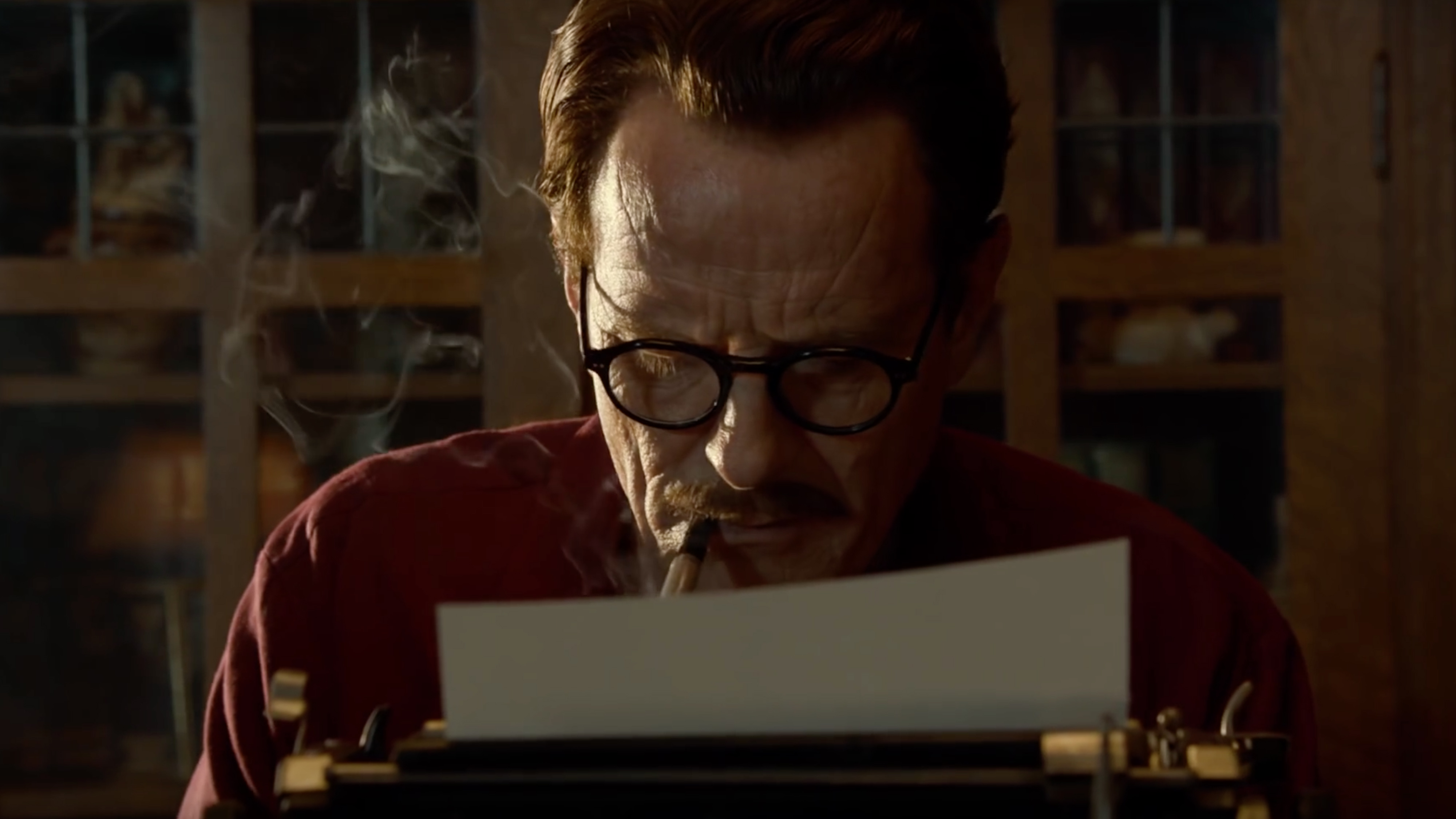Despite painting history with broad strokes and black-and-white notions of good and evil, Trumbo largely manages to avoid feeling like Oscar bait by leaning into 1940s and ’50s Hollywood tropes and embracing its own inherent cheese.
That’s not to say it won’t win Oscars. After all, Trumbo tells the story of Dalton Trumbo (fan favorite Bryan Cranston), the blacklisted screenwriter who helped lead the fight against the House Un-American Activities Commission (HUAC) during the Cold War. And Hollywood loves to celebrate Hollywood. But with the exception of two scenes—one in which an imprisoned Trumbo earns the grudging respect of a fellow inmate, and one in which his daughter Nikola (Elle Fanning) confesses that despite her daddy issues she’s always wanted to be just like him—Trumbo comes across as remarkably fresh.
For one, Trumbo maintains a healthy sense of fun, avoiding the weighty self-importance of most “Hollywood on Hollywood” films. This is likely due in large part to director Jay Roach’s experience with broad comedies (his previous credits include the Meet the Parents and the Austin Powers series).
Trumbo is well paced and peppered with delightfully campy—but completely spot-on—impressions of John Wayne (TV character actor David James Elliott), Kirk Douglas (The Hobbit’s Dean O’Gorman), and director Otto Preminger (Christian Berkel, the go-to German guy in films like The Man from U.N.C.L.E. and Inglourious Basterds) to name a few.
Coen Brothers veterans John Goodman and Stephen Root steal the show as the King Brothers, the B-movie producers responsible for such classics as Klondike Fury and The Dude Goes West, and the best scene in the film comes courtesy of a baseball bat–wielding Goodman.
Trumbo maintains a healthy sense of fun, avoiding the weighty self-importance of most “Hollywood on Hollywood” films.
While the cartoonish nature of most of its performances makes this film fun enough to overlook its flaws (choppy editing and a healthy dose of tell-don’t-show exposition among them), nestled among Trumbo’s winning caricatures are two notably nuanced performances.
Michael Stuhlbarg’s (A Serious Man) turn as actor Edward G. Robinson is thoughtful and quiet—especially next to Helen Mirren’s brilliant, but seriously over-the-top, take on gossip columnist Hedda Hopper—and Diane Lane manages to do a lot with very little as Cleo Trumbo, Dalton’s archetypal steadfast wife. Despite playing a character comprised almost entirely of reaction shots and knowing smiles, Lane holds her own against Cranston (wonderful as always, but with some stiff competition this time), saying more with a glance than he does with pages of stiltedly snappy dialogue.
And therein lies Trumbo’s biggest flaw. The dialogue is just a little too snappy and the hero just a little too polished. It checks off all of the biopic boxes, and save for the obligatory drinks-too-much-and-yells-at-his-family scene, paints Dalton Trumbo as a saint and all of his enemies as demons. For a film about a renegade screenwriter willing to risk everything, Trumbo takes remarkably few risks. It’s certainly worth seeing, but don’t expect it to bring anything new to the table. FL







